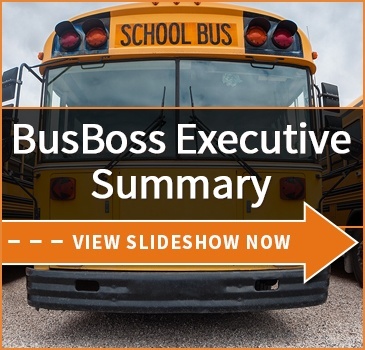How Student Transportation Is Changing From COVID-19 According To The Experts
published on January 07, 2021 by Sonia Mastros
Student Transportation, school bus transportation, coronavirus
 2020 was a year of crisis for many industries, and that certainly includes the student transportation industry. Schools across the nation were completely unprepared for the pandemic, leading to them having to make many blind leaps into policy changes or new technologies while looking for ways to keep students safe.
2020 was a year of crisis for many industries, and that certainly includes the student transportation industry. Schools across the nation were completely unprepared for the pandemic, leading to them having to make many blind leaps into policy changes or new technologies while looking for ways to keep students safe.
How is this affecting the industry, and what changes are likely to continue into the future? This interesting series of interviews with student transportation industry leaders from School Bus Fleet has a lot of ideas. Here are some of the key takeaways we got from it.
Five Changes To Student Transportation Predicted by Industry Experts
1. More Flexible Transportation Plans
Many of the schools which were caught off-guard by the pandemic basically had no 'Plan B' in place. There were no plans for what to do if buses could no longer do all the heavy lifting in safely transporting students. Accordingly, schools should start thinking harder about disaster-style scenarios, and building safety nets that will reduce disruption if something unexpected occurs in the future.
2. Increased Use of Virtual Technologies
Another thing demonstrated by the coronavirus is that the industry had an over-reliance on in-person meetings. From bus driver training to parent conferences, school districts need to start looking into more high-tech solutions that can avoid face-to-face meetings. This can include the use of videoconferencing products such as Zoom, eLearning, even adopting virtual reality for remote bus driver training.
3. More Emphasis on Improving Morale
Districts can't overlook the stress and strain being put on all their transportation staff. Maintaining morale is more important than ever. Administrators should strive to be more aware of their staff's mental state, and look for opportunities to praise them for their efforts. Proactive positive management techniques are called for when times are tough.
4. Higher Investment Into Disease-Fighting Technologies
In the long run - and it's looking like COVID-19 will be a problem for at least another year - it's extremely inefficient and costly to have employees attempting to manually clean and sterilize buses. Investments into spraying or misting systems to spread antimicrobial agents may have an up-front cost but will have long-term payoffs in terms of time and effort saved.
5. Avoiding Traditional Indoor Job Fairs
Many districts are in need of increased staff across the board, but they will have to look for creative ways to handle recruitment. Indoor job fairs are a no-go until COVID-19 vaccinations are standard. Until then, outdoor job fairs can still be safe, and districts are also experimenting with other creative techniques like using school buses for "drive-through" recruitment efforts.
How has your district been changing its policies in response to the coronavirus outbreak? If you have any creative suggestions, please share them in the comments below!



